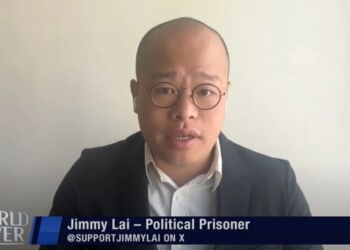A couple of weeks ago, Steve Moore and I revealed in this space that Census Bureau data shows that native-born Americans are fleeing high-tax states. But further examination of the migration data by me reveals more: Native-born Americans are also fleeing states with unusually high proportions of college-educated adults, moving often to states with what by American standards would be considered relatively less educated inhabitants. For example, Census Bureau data suggests Massachusetts has the largest proportion of adults with college degrees at the bachelor’s level or more, nearly 48 percent. Yet in a 12-month period in 2023–24, Census Bureau data showed that more than 27,000 native-born Americans left that state than entered. By contrast, West Virginia has the lowest proportion of college graduates, 24 percent, yet it had net in-migration of over 4,000 Americans.
Looking more broadly, 20 states had more than the national average of 36.2 percent college graduates, while 30 had less. The high college graduate states collectively had an out-migration of nearly 344,000 — nearly a thousand persons a day. New York, with over 40 percent college graduates, had net out-migration of over 120,000, while South Carolina, with fewer than 33 percent adults with such degrees, had in-migration of over 68,000.
The same zeitgeist that often made many (but not all) college campuses hotbeds of progressive ideas probably often had longer term effects on the students populating them, leading them as voting adults to often favor expansionist state programs to support low-income residents and senior citizens, and other leftish policy nostrums such as restricting fracking or blocking new pipelines or home construction through stringent zoning laws. It also meant support for highly progressive income taxation. It is no accident that states with relatively high proportions of college graduates like California and New York also have high income taxes; in both states some residents face marginal state income tax rates of about 13 percent, compared with zero in Texas and Tennessee, states with a below average percentage of college graduates. Is it no wonder California had a phenomenal one-year net out-migration of nearly 240,000?
Since migration statistics provide arguably our best measure of overall satisfaction with any geographic area, the fleeing of states with lots of relatively high educated people might suggest that universities are a “negative externality,” having bad spillover effects. We tax or restrict whiskey consumption and strip clubs, why not colleges? In public policy terms, should we be taxing, not subsiding, universities? Buyers of automobiles pay state sales taxes on their new cars — shouldn’t college students also pay taxes on tuition fees?
To be sure, there are many other factors impacting migration — climate, the quality of public services, housing prices, crime rates, etc. More sophisticated empirical analysis controlling for a multiplicity of factors conceivably would weaken the results cited above. Nonetheless, the migration data seemingly provides support for some of the Trump administration’s moves against universities — big fines on schools like Columbia, restricting visas for potential foreign students, much more stringent rules on repaying federal student loans, reducing research support, attacks on anti-meritorious DEI practices, etc. Along with the longer-term consequences of plummeting birth rates and artificial intelligence, it makes the prospects for universities over the next several years look rather bleak.
As a college professor with over a half century of experience in the classroom, these results sadden me. But academic rent-seeking has sometimes encouraged universities to pursue not what is optimal for society, but what enhances faculty and administrator income and working conditions and allows them to live modestly prosperous lives with high job security. The Trump administration’s initiatives, accompanied by similar attacks on dubious academic practices at the state level, hopefully will help restore higher education’s traditional role as a positive contributor to our lives.
Richard Vedder is emeritus professor at Ohio University and senior fellow at both the Independent Institute and Unleash Prosperity. His latest book is Let Colleges Fail: The Power of Creative Destruction in Higher Education.





![Gavin Newsom Threatens to 'Punch These Sons of B*thces in the Mouth' [WATCH]](https://www.right2024.com/wp-content/uploads/2025/08/Gavin-Newsom-Threatens-to-Punch-These-Sons-of-Bthces-in-350x250.jpg)
![ICE Arrests Illegal Alien Influencer During Her Livestream in Los Angeles: ‘You Bet We Did’ [WATCH]](https://www.right2024.com/wp-content/uploads/2025/08/ICE-Arrests-Illegal-Alien-Influencer-During-Her-Livestream-in-Los-350x250.jpg)








